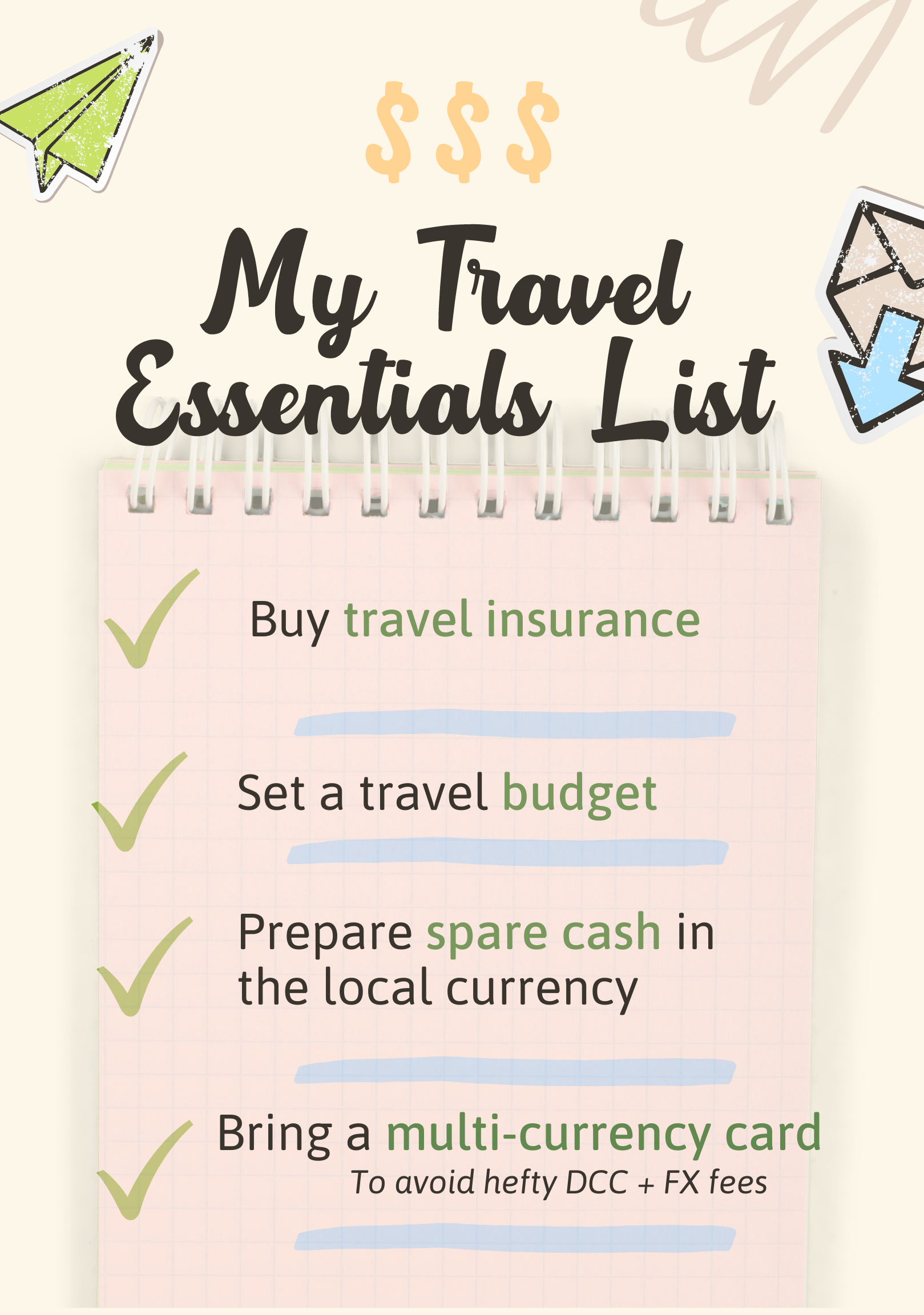As overseas travel reopens in a post-COVID world, what should you take note of before you fly so that you don’t end up busting your budget?
Set a travel budget
The first thing you should do is to draw up an overall travel budget that reflects how much you’re willing to spend. The amount may vary depending on the destination, how long you’ll be staying for as well as how many people you’re going with (or paying for, if it is a family vacation). But having a good gauge of your budget (e.g. S$10,000 for a 2-week Australia trip) will help you to know what limits you’d want to be working within.
Another tip would be to track your expenses while you’re on the trip. This will help to ensure that you stay on track, and give you more insights into any discretionary spending that you might want to cut down on.
Buy travel insurance
Aside from lost luggage or theft, you’ll likely want to get a travel insurance plan that ideally comes with some level of protection for COVID-19 coverage, especially if you were to catch it while abroad or even right before you’re due to fly. Features to look out for could include:
- Medical expenses coverage in the event that you contract COVID-19 abroad
- Overseas quarantine allowance
- Trip cancellation due to COVID-19 (or rising cases abroad)
Insurers like FWD and NTUC Income offer these sort of COVID-19 travel protection plans, so spend some time comparing across the different options and make sure you get one that covers you adequately for your trip.
Bring a multi-currency card
Make sure you bring along a multi-currency card like amaze, Revolut or YouTrip so that you can reap the following benefits while abroad:
- Competitive foreign exchange rates
- No FCY transactions or DCC fees (that are typically charged on your credit cards)
- ATM withdrawals
The rates are often lower than what the banks / traditional money changers offer, so it pays to get one of these cards if you’re intending to travel anytime soon.
And if you don’t already have an Amaze card, you may also want to consider signing up for one as it allows you to convert your offline transactions (at retail shops) to online transactions for the underlying credit/debit card that you’ve paired. Psst, this is a great hack that I’ve personally been employing to earn 4 miles per dollar on my DBS Woman’s World Card!
Prepare spare cash in the local currency
While a multi-currency card should serve you well, there may still be several transactions that you will need local cash for, such as the taxi ride from the airport or for street food purchases, etc. I usually bring along at least $100 of local currency justtttt in case.
Of course, don’t forget the other stuff like getting a local SIM card (or WIFI package) and booking discounted accommodation or activities online prior to your trip. What other travel essentials are a must-have for you?
With love,
Budget Babe


